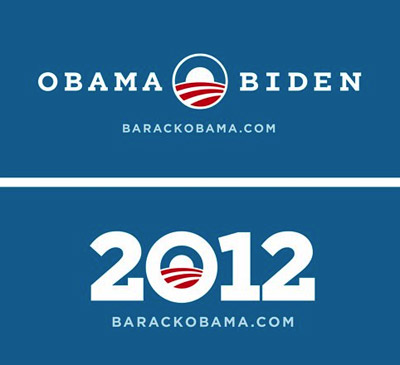 An article recently published by Daniel Tencer, a contributor for Huffington Post Canada, writes about a study that focuses on who controls the wealth in the world, not the United States, but the world. It focuses in on how a very few in our world actually control 40 percent of the weatlh (entire study can be found here).
An article recently published by Daniel Tencer, a contributor for Huffington Post Canada, writes about a study that focuses on who controls the wealth in the world, not the United States, but the world. It focuses in on how a very few in our world actually control 40 percent of the weatlh (entire study can be found here).
Top Control-Holders Ranking
This is the first time a ranking of economic actors by global control is presented. Notice that many actors belong to the financial sector (NACE codes starting with 65,66,67) and many of the names are well-known global players. The interest of this ranking is not that it exposes unsuspected powerful players. Instead, it shows that many of the top actors belong to the core.
This means that they do not carry out their business in isolation but, on the contrary, they are tied together in an extremely entangled web of control. This finding is extremely important since there was no prior economic theory or empirical evidence regarding whether and how top players are connected. Finally, it should be noted that governments and natural persons are only featured further down in the list.
Daniel Tencer’s article:
A Swiss study appears to have uncovered what anti-capitalist activists have been claiming for years — that the global economy is controlled by a small group of deeply interconnected entities.
The researchers say that while there’s nothing wrong, in and of itself, with the concentration of capital in the hands of a small number of companies, when those companies become too interconnected, they can cause chain reactions that can harm the economy.
“If one [company] suffers distress,” study co-author James Glattfelder said, “this propagates [itself].”
That fits with recent experience; the financial crisis of 2008 began as a problem of excessive liabilities at a handful of companies. But these companies had financial links to the rest of the industry, and their insolvency threatened to take down the entire financial system.
According to the study, which will be published shortly in the scientific journal PLoS One, there is a core group of 1,318 multinational companies that sit at the centre of global commerce. They own a majority of shares in 60 per cent of the world’s large businesses and manufacturers.
Within that group, the researchers identified a “super-entity” of 147 companies that control 40 per cent of the wealth within the multinational commerce network. According to the researchers, each of the 147 companies is owned by other companies within the “super-entity,” essentially creating a self-contained network of wealth.
The researchers say their work is evidence the world may need global anti-trust regulations — rules designed to keep companies from becoming too large in their sector, or from developing de facto agreements to cooperate with competitors.
Here is a list of the top five corporations (study findings can be found here).
1. Barclays
 The 321-year-old British bank Barclays plc has been a mover and shaker in the world of finance since before anyone had conjured up the word “capitalism.” In the 1990s, the bank’s prominence in the UK made it a target of “Mardis Gras Bomber” Edgar Pearce. In 2008, Barclays bought the investment banking and trading divisions of Lehman Brothers, the Wall Street financial firm whose bankruptcy triggered the financial crisis.
The 321-year-old British bank Barclays plc has been a mover and shaker in the world of finance since before anyone had conjured up the word “capitalism.” In the 1990s, the bank’s prominence in the UK made it a target of “Mardis Gras Bomber” Edgar Pearce. In 2008, Barclays bought the investment banking and trading divisions of Lehman Brothers, the Wall Street financial firm whose bankruptcy triggered the financial crisis.
2. Capital Group Company

Founded by self-made financier Jonathan Bell Lovelace in 1931, Capital Group Companies today manages more than $1 trillion of assets with a surprisingly small staff, around 7,500 people. The Los Angeles-based investment management firm likes to keep a low profile, and counts Fidelity Investments among its largest competitors.
3. Fidelity Investments
 Fidelity Investments is primarily a brokerage and mutual fund manager. The company has seen significant job reductions, with its staff falling from 47,000 in 2007 to 38,000 in 2009 — a sign that even companies near the centre of global power aren’t immune from downsizing.
Fidelity Investments is primarily a brokerage and mutual fund manager. The company has seen significant job reductions, with its staff falling from 47,000 in 2007 to 38,000 in 2009 — a sign that even companies near the centre of global power aren’t immune from downsizing.
4. AXA Insurance
 Paris-based AXA manages more than $1.1 trillion of other people’s money, has $730 billion in assets and employs more than 100,000 people around the world. AXA CEO Henri de Castries is shown here in 2008.
Paris-based AXA manages more than $1.1 trillion of other people’s money, has $730 billion in assets and employs more than 100,000 people around the world. AXA CEO Henri de Castries is shown here in 2008.
5. State Street Corporation
 This 209-year-old, Boston-based company ranks in fifth place on Vitali et al’s Network of Global Corporate Control. The company manages more than $2 trillion in assets, has assets itself of around $160 billion, and employs just short of 30,000 people.
This 209-year-old, Boston-based company ranks in fifth place on Vitali et al’s Network of Global Corporate Control. The company manages more than $2 trillion in assets, has assets itself of around $160 billion, and employs just short of 30,000 people.






























